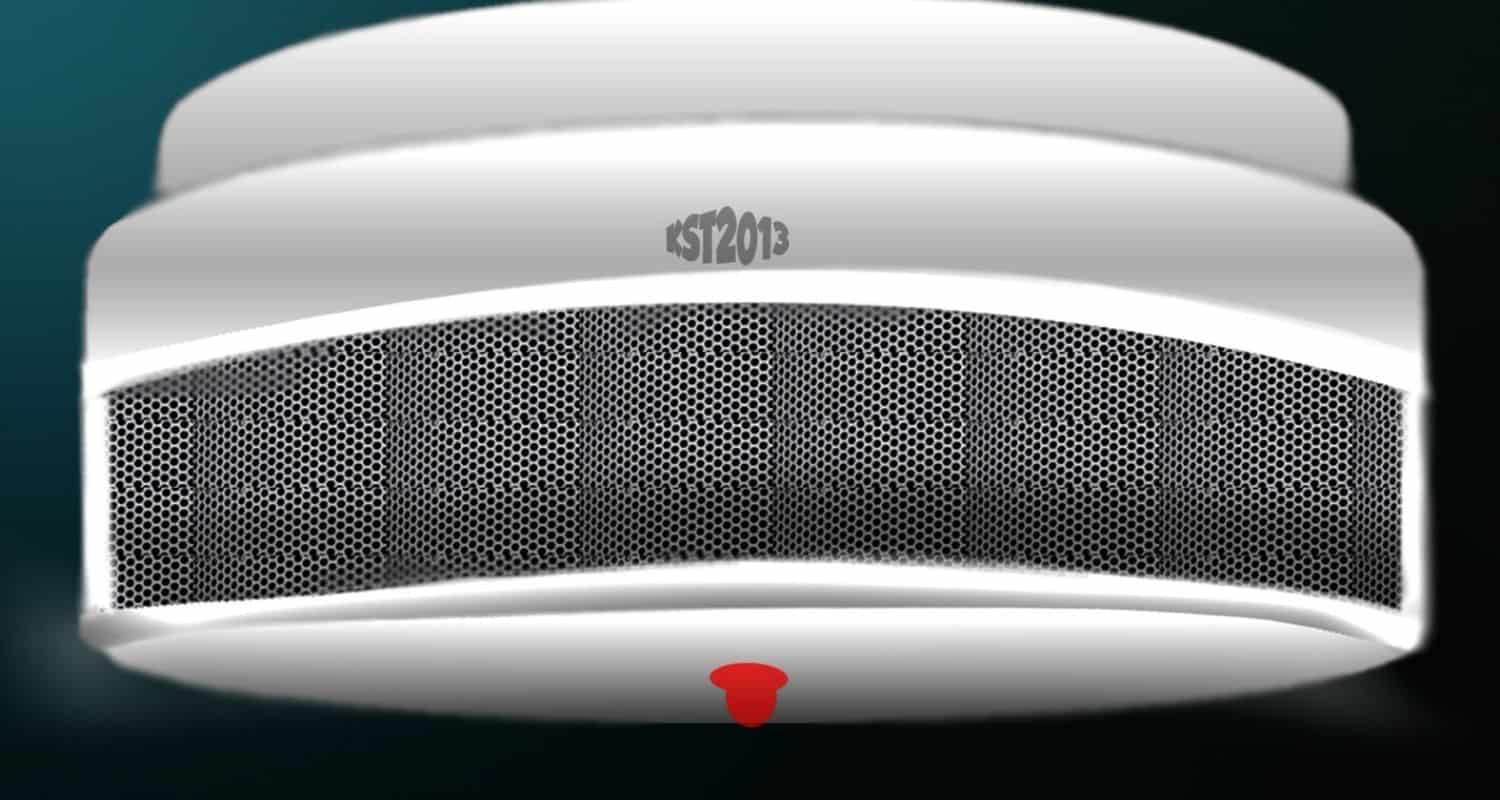What Type of Fire Alarms Do Hotels Use? A Comprehensive Guide
When it comes to fire safety, hotels have a critical responsibility to protect their guests and staff from the devastating consequences of a fire. One of the most crucial components of a hotel’s fire safety system is the fire alarm. But what type of fire alarms do hotels use, and how do they work?
If you’re short on time, here’s a quick answer to your question: Hotels typically use a combination of different types of fire alarms, including smoke detectors, heat detectors, and manual pull stations, all connected to a central fire alarm control panel.
In this comprehensive guide, we’ll dive deep into the world of hotel fire alarms, exploring the various types, their functions, and the regulations that govern their installation and maintenance. Whether you’re a hotel owner, manager, or simply curious about fire safety, this article will provide you with valuable insights and a thorough understanding of the fire alarm systems used in the hospitality industry.
Types of Fire Alarms Used in Hotels
When it comes to fire safety, hotels take no chances. They employ a variety of sophisticated fire alarm systems to detect and respond to potential fires, ensuring the safety of guests and staff alike. Let’s delve into the different types of fire alarms commonly used in hotels.
Smoke Detectors
Smoke detectors are the frontline defense against fires in hotels. These devices are designed to detect the presence of smoke particles in the air, alerting occupants to a potential fire before it escalates. Hotels typically install smoke detectors in guest rooms, hallways, and common areas.
According to the National Fire Protection Association (NFPA), smoke alarms in US homes are present in 96% of fires and provide an early warning in 55% of fires.
Heat Detectors
While smoke detectors are essential, heat detectors provide an additional layer of protection. These devices are designed to detect abnormally high temperatures, which can indicate the presence of a fire.
Heat detectors are often installed in areas where smoke may not be present initially, such as kitchens, laundry rooms, and boiler rooms. According to a study by the FM Global Research Division, heat detectors can provide up to 15 minutes of additional warning time compared to smoke detectors in certain fire scenarios.
Manual Pull Stations
Manual pull stations, also known as fire alarm pull boxes, allow hotel staff and guests to manually activate the fire alarm system in case of an emergency. These stations are strategically placed throughout the hotel, typically near exits and stairwells.
When the lever or handle is pulled, it triggers the fire alarm system, alerting everyone in the building to evacuate. According to the NFPA, manual pull stations account for approximately 10% of all fire alarm activations in hotels and motels.
Sprinkler Systems
Sprinkler systems are a critical component of fire safety in hotels. These systems are designed to automatically release water when triggered by heat or smoke, helping to contain and extinguish fires. Hotels typically have wet pipe sprinkler systems, which are always filled with water and ready to deploy.
According to the U.S. Fire Administration, sprinklers are effective in controlling fires in 96% of cases where they operate properly.
Fire Alarm Control Panels
At the heart of a hotel’s fire alarm system is the fire alarm control panel (FACP). This central hub monitors and controls all the various components of the fire alarm system, including smoke detectors, heat detectors, pull stations, and sprinklers.
The FACP can pinpoint the location of an alarm, allowing hotel staff to respond quickly and efficiently. Many modern FACPs are also equipped with advanced features such as remote monitoring, voice evacuation systems, and integration with other building systems.
By employing a combination of these fire alarm systems, hotels can provide a comprehensive and effective approach to fire safety. Regular testing, maintenance, and staff training are essential to ensure these systems function properly in the event of an emergency.
With the right fire alarm systems in place, hotels can prioritize the safety of their guests and staff, providing peace of mind for all.
Regulations and Standards for Hotel Fire Alarms
When it comes to fire safety in hotels, regulations and standards are of paramount importance. These guidelines ensure that guests and staff are adequately protected in the event of a fire emergency. Several organizations and governing bodies have established comprehensive codes and requirements for fire alarm systems in hotels.
National Fire Protection Association (NFPA) Codes
The National Fire Protection Association (NFPA) is a globally recognized authority on fire safety standards. Their codes, particularly NFPA 101: Life Safety Code, provide detailed guidelines for fire alarm systems in hotels.
According to the NFPA, all hotels must have a functioning fire alarm system that meets specific requirements, such as:
- Smoke detectors in all guest rooms, corridors, and common areas
- Audible and visible alarm notification devices throughout the building
- Emergency voice communication systems for broadcasting instructions
- Regular testing and maintenance of the fire alarm system
The NFPA also mandates that fire alarm systems be monitored by a central station or an approved local fire department. This ensures prompt response in case of an emergency. Failure to comply with NFPA codes can result in hefty fines and potential legal consequences.
Local Building Codes and Ordinances
In addition to national codes, hotels must also adhere to local building codes and ordinances set by state, county, or municipal authorities. These codes often incorporate or reference NFPA standards but may have additional requirements specific to the local area.
For instance, some jurisdictions may require fire alarm systems to be connected directly to the local fire department or have stricter guidelines for the placement of smoke detectors.
It’s crucial for hotel owners and operators to familiarize themselves with the local building codes and work closely with fire marshals or inspectors to ensure compliance. Regular inspections and audits are typically conducted to verify that the fire alarm system meets all applicable codes and regulations.
Americans with Disabilities Act (ADA) Compliance
The Americans with Disabilities Act (ADA) sets guidelines to ensure that public accommodations, including hotels, are accessible to individuals with disabilities. When it comes to fire alarm systems, the ADA requires hotels to provide accessible means of notification and evacuation for guests with hearing or visual impairments.
This may include the installation of visual alarm devices, such as strobe lights or vibrating devices, in guest rooms and public areas for individuals with hearing impairments. Additionally, hotels must provide audible alarms and clear signage to assist guests with visual impairments during an emergency.
Compliance with ADA regulations is not only a legal requirement but also a matter of ensuring the safety and accessibility of all guests.
By adhering to these regulations and standards, hotels can ensure that their fire alarm systems are up-to-date, effective, and compliant with the latest safety guidelines. This not only protects guests and staff but also helps maintain the hotel’s reputation and avoid potential legal consequences resulting from non-compliance.
Installation and Maintenance of Hotel Fire Alarms
When it comes to ensuring the safety of guests and staff in hotels, the proper installation and maintenance of fire alarms is crucial. Fire alarms are an essential component of a hotel’s fire protection system, and their effectiveness relies heavily on professional installation, regular testing, and meticulous maintenance procedures.
Professional Installation and Commissioning
The installation of hotel fire alarms is a complex process that requires the expertise of certified professionals. These specialists follow strict guidelines and regulations set forth by organizations like the National Fire Protection Association (NFPA) to ensure that the system is installed correctly and meets all safety standards.
During the installation process, technicians carefully place smoke detectors, heat detectors, and manual pull stations in strategic locations throughout the hotel, ensuring optimal coverage and early detection of potential fires.
Once the system is installed, it undergoes a rigorous commissioning process to verify its functionality and compliance with local fire codes. This process includes testing every component of the system, from the detectors to the control panels and notification devices.
Only after passing these tests is the system certified for use and deemed ready to protect the hotel and its occupants.
Regular Testing and Inspections
Regular testing and inspections are essential to ensure the continuous reliability and effectiveness of hotel fire alarms. Most jurisdictions require monthly tests of the system’s components, such as manually activating the pull stations or simulating smoke conditions to verify that the detectors are functioning correctly.
Additionally, annual inspections by certified professionals are typically mandated to thoroughly evaluate the system’s performance and identify any potential issues or necessary repairs.
According to a study conducted by the NFPA, properly maintained fire alarm systems were found to be operational in 88% of reported fires in hotels and motels between 2012 and 2016. This statistic underscores the importance of regular testing and inspections in ensuring the effectiveness of these life-saving systems.
Maintenance and Repair Procedures
Even with regular testing and inspections, hotel fire alarms may require maintenance or repairs due to various factors, such as aging components, environmental conditions, or accidental damage. Proper maintenance procedures involve cleaning and replacing components as needed, ensuring that the system operates at peak performance.
Certified technicians follow strict protocols to troubleshoot and repair any issues, often referring to the manufacturer’s guidelines and industry best practices.
It’s worth noting that some hotels have begun implementing advanced fire alarm systems that incorporate Internet of Things (IoT) technology and cloud-based monitoring. These systems allow for remote monitoring and maintenance, reducing the need for on-site visits and enabling faster response times in case of emergencies.
However, even with these cutting-edge systems, regular on-site inspections and maintenance remain crucial to ensure optimal performance and compliance with regulations.
By following best practices for installation, testing, and maintenance, hotels can ensure that their fire alarm systems are always ready to protect guests, staff, and property in the event of a fire. It’s a responsibility that should never be taken lightly, as the safety of lives and the reputation of the establishment are at stake.
👍
Fire Alarm Monitoring and Emergency Response
When it comes to ensuring the safety of hotel guests and staff, fire alarm monitoring and emergency response protocols are of paramount importance. Hotels, with their high occupancy rates and diverse guest demographics, must have robust systems in place to swiftly detect and respond to potential fire emergencies.
This section delves into the critical aspects of central monitoring stations, emergency evacuation plans, and staff training and drills.
Central Monitoring Stations
Most modern hotels employ central monitoring stations that continuously monitor the fire alarm system and other safety-related systems. These monitoring stations are typically staffed 24/7 and are equipped with advanced software and communication systems.
When a fire alarm is triggered, the monitoring station immediately receives an alert, enabling them to dispatch emergency responders and initiate evacuation procedures without delay. According to a study by the National Fire Protection Association (NFPA), hotels with central monitoring stations have significantly reduced response times, potentially saving lives and minimizing property damage.
Emergency Evacuation Plans
Comprehensive emergency evacuation plans are crucial for hotels. These plans outline specific procedures for safely evacuating guests and staff in the event of a fire or other emergency. They typically include designated evacuation routes, assembly points, and protocols for assisting individuals with disabilities or special needs.
Evacuation plans are often prominently displayed in guest rooms and common areas, providing clear instructions and visual aids to guide occupants to safety. According to a survey conducted by the American Hotel & Lodging Association (AHLA), over 90% of hotels have established emergency evacuation plans in place, reflecting the industry’s commitment to guest safety.
- Evacuation routes are clearly marked and well-lit.
- Assembly points are designated in safe, open areas away from the building.
- Special procedures are in place for guests with mobility issues or disabilities.
Staff Training and Drills
Effective staff training and regular fire drills are essential components of a hotel’s fire safety strategy. Hotel employees undergo comprehensive training on fire prevention, emergency response procedures, and the proper use of fire safety equipment.
They are taught to remain calm and follow established protocols to ensure the safe evacuation of guests and colleagues. Regular fire drills, conducted at least twice a year according to industry standards, help reinforce the emergency procedures and identify any potential areas for improvement.
😊 During these drills, staff members practice their roles, ensuring a swift and coordinated response in the event of a real emergency.
By implementing robust fire alarm monitoring systems, comprehensive emergency evacuation plans, and rigorous staff training programs, hotels can significantly enhance their preparedness for fire emergencies.
These measures not only protect lives but also safeguard the hotel’s reputation and minimize potential liabilities. Remember, when it comes to fire safety, there is no room for complacency – constant vigilance and proactive measures are key to ensuring the well-being of guests and staff alike. 👏
Emerging Technologies in Hotel Fire Alarms
The hotel industry is constantly evolving to meet the demands of modern guests and adhere to stringent safety regulations. As technology advances, fire alarm systems in hotels are undergoing significant transformations to enhance protection, efficiency, and integration with other building systems.
Three notable emerging technologies in this domain are addressable fire alarm systems, wireless fire alarm systems, and integration with building automation systems.
Addressable Fire Alarm Systems
Addressable fire alarm systems have become a game-changer in the hotel industry. Unlike conventional systems that simply identify a zone where a fire is detected, addressable systems pinpoint the exact location of the alarm, down to the specific device.
This level of precision not only accelerates response times but also minimizes disruptions and false alarms. According to a report by MarketsandMarkets, the global addressable fire alarm system market is projected to reach $10.2 billion by 2027, driven by the growing demand for advanced fire safety solutions in commercial buildings, including hotels.
Wireless Fire Alarm Systems
Wireless fire alarm systems are gaining traction in the hotel industry due to their flexibility, ease of installation, and cost-effectiveness. These systems eliminate the need for extensive wiring, making them ideal for older buildings or properties undergoing renovations.
Wireless technology also enables seamless communication between devices, ensuring reliable and rapid transmission of alarm signals. A study by Grand View Research estimates that the global wireless fire alarm system market will reach $3.7 billion by 2028, with the hospitality sector being a significant contributor to this growth.
Integration with Building Automation Systems
Modern hotels are embracing the integration of fire alarm systems with building automation systems (BAS). This integration allows for centralized monitoring and control of various building systems, including lighting, HVAC, and access control.
By linking fire alarms with the BAS, hotels can automatically initiate emergency protocols, such as shutting down ventilation systems, unlocking exit doors, and triggering evacuation procedures. This seamless integration not only enhances safety but also improves operational efficiency and energy management.
According to a report by Allied Market Research, the global building automation system market is expected to reach $109.6 billion by 2026, with fire and life safety systems being a key component.
As the hotel industry continues to prioritize guest safety and operational efficiency, the adoption of emerging technologies in fire alarm systems will only accelerate. By embracing addressable, wireless, and integrated fire alarm solutions, hotels can stay ahead of the curve, providing unparalleled protection and peace of mind for both guests and staff alike.
Don’t let your hotel fall behind in this crucial aspect of safety – embrace the future of fire alarm technology today!
Conclusion
Fire safety is a paramount concern for hotels, and having a reliable and effective fire alarm system is crucial in protecting lives and property. By understanding the various types of fire alarms used in hotels, the regulations and standards that govern their installation and maintenance, and the importance of proper monitoring and emergency response, hotel owners and managers can ensure the safety of their guests and staff.
As technology continues to evolve, the fire alarm industry is also advancing, offering innovative solutions such as addressable and wireless systems, as well as integration with building automation systems.
By staying up-to-date with these emerging technologies, hotels can further enhance their fire safety measures and provide a safer environment for everyone.
Ultimately, investing in a comprehensive and well-maintained fire alarm system is not just a legal requirement but a moral obligation for hotels. By prioritizing fire safety, hotels can build trust with their guests and establish a reputation for excellence in the hospitality industry.





